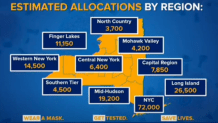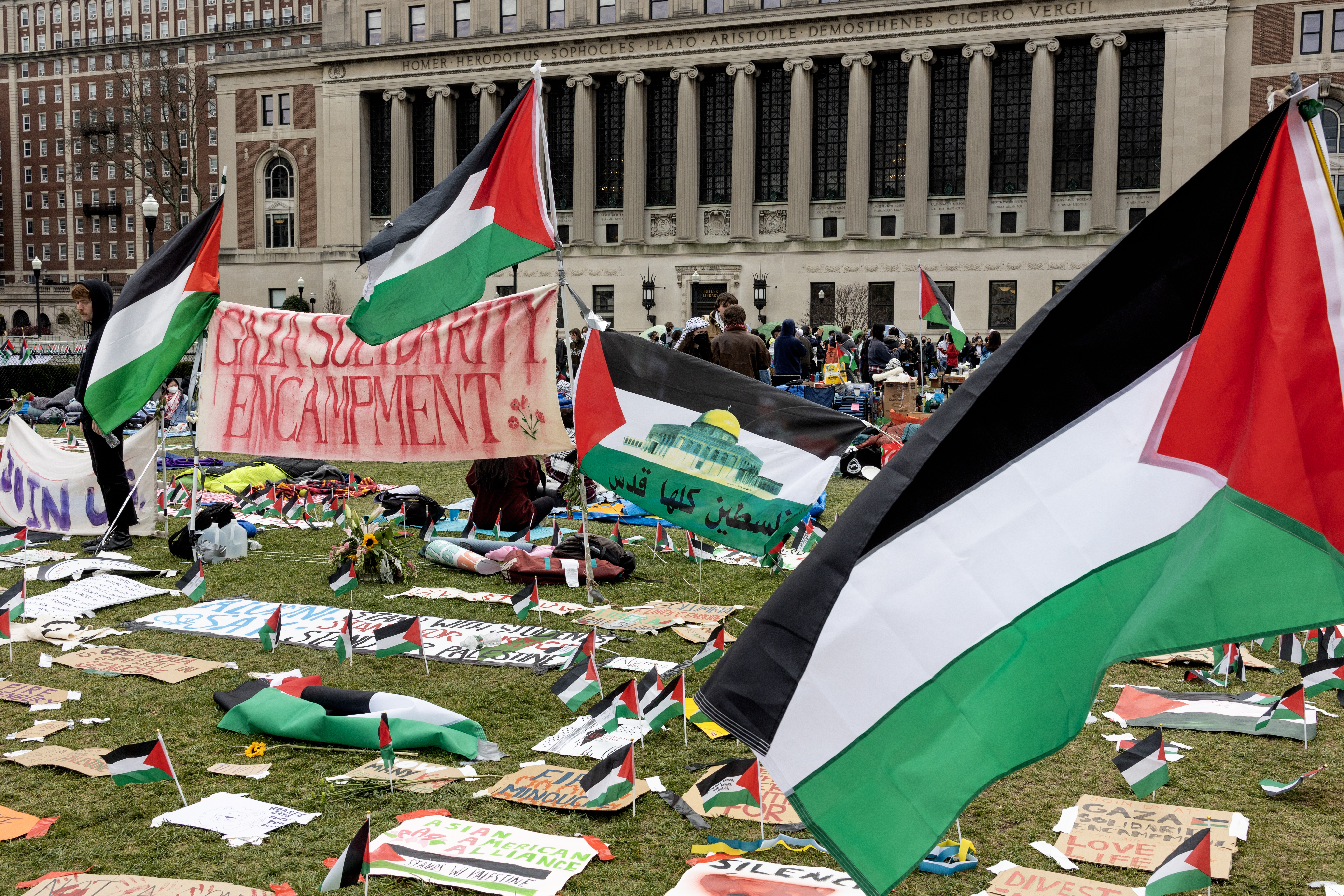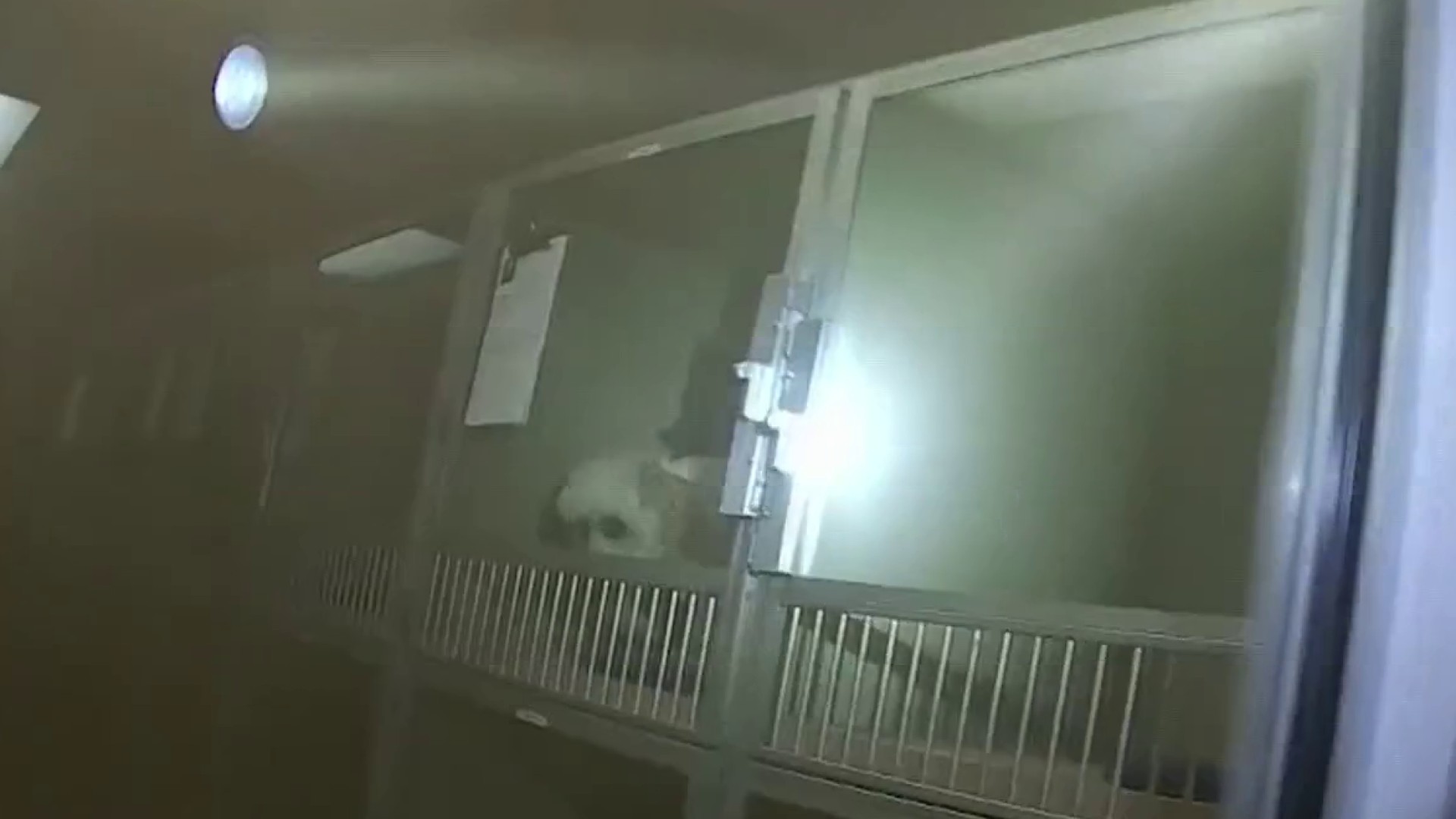What to Know
- There is light on the horizon as states could be mere days away from receiving their first doses of a COVID-19 vaccine and essentially rolling out one of public health’s most important goals to date: providing vaccinations for millions of individuals in order to effectively return to a semblance of pre-pandemic normalcy.
- New York City is slated to receive an estimated 72,000 doses -- the most for any region in the state. Long Island will receive the second highest amount of doses with 26,500.
- Gov. Andrew Cuomo has shared on various occasions the level of priority for those who will receive the vaccine.
There is light on the horizon as states could be mere days away from receiving their first doses of a COVID-19 vaccine and essentially rolling out one of public health’s most important goals to date: providing vaccinations for millions of individuals in order to effectively return to a semblance of pre-pandemic normalcy.
With this in mind, Dr. Dave Chokshi, the commissioner of the New York City Department of Health and Mental Hygiene, shared some facts about the Pfizer COVID vaccine in preparation for its forthcoming rollout.
NYC SHARES QUICK FACTS ABOUT PFIZER'S COVID-19 VACCINE
The Pfizer vaccine, like other new COVID vaccines, are messenger RNA vaccines—also called mRNA vaccines.
"The new COVID mRNA vaccines, like the Pfizer vaccine, teach ourselves how to build immunity to the virus that causes COVID-19," Chocksi said. "mRNA does not affect or interact with a person’s DNA and the cell breaks down and gets rid of the mRNA as soon as it is finished using that information."
According to the CDC, "mRNA vaccines are a new type of vaccine to protect against infectious diseases. To trigger an immune response, many vaccines put a weakened or inactivated germ into our bodies. Not mRNA vaccines. Instead, they teach our cells how to make a protein—or even just a piece of a protein—that triggers an immune response inside our bodies. That immune response, which produces antibodies, is what protects us from getting infected if the real virus enters our bodies."
News
One of the first points that Chocksi stressed is that the vaccine is moderately effective within 10 to 14 days of the first dose. Something he called "good news." However, there is a caveat: receiving the necessary two doses is essential.
"The second dose remains very important because the two dose vaccine was what was tested and found to be highly effective – that’s that 95 percent – at preventing COVID-19," the health commissioner said.
The second point Chokshi shared is that the Pfizer vaccine worked across all adult age groups, ethnicities and people with underlying medical conditions – such as diabetes, obesity and high blood pressure – who participated in the trials.
Additionally, the side effects are described as mild to moderate.
"There were side effects but they were mild to moderate," Chokshi said. "They were more common after the second dose and they generally lasted one to two days. The most common side effects included pain in the injection site, fatigue and headache."
The city announced it will continue to update New Yorkers about the vaccine and its rollout so that they know what to expect with the vaccination.
Over the next several weeks there will be a lot of movement with the vaccine and rollout. An independent FDA advisory committee is scheduled to discuss authorization Thursday, which could lead the FDA to issue an emergency use authorization as soon as Saturday and if so, on Sunday, a CDC advisory committee will also meet and vote on clinical guidance to accompany the vaccine rollout, Chokshi said. If all goes according to plan the first doses of the Pfizer vaccine would arrive in New York City as soon as next Tuesday, Dec. 15.
Next week a similar process will unfold for the Moderna vaccine, which could arrive a week or two after the Pfizer vaccine, Chokshi said.
The city will continue to post vaccine information as it becomes available on its health department website.
NEW YORK STATE VACCINE DISTRIBUTION PLAN
New York City is not the only location that expects the vaccines, the entire state of New York and New Jersey both expect to receive initial doses of Pfizer's shipment within one week; they expect tens of thousands from Moderna, which takes up its request with the FDA a week after Pfizer, before the end of the month as well.
New York Gov. Andrew Cuomo said he expects New York to receive its initial allocation of 170,000 Pfizer doses as early as this weekend and additional allocations in the coming weeks.
Cuomo has shared on various occasions the level of priority for those who will receive the vaccine. According to the governor, the vaccines will be distributed as follows:
- High-risk healthcare workers and hospital staff receive first priority;
- Followed by long-term care staff and residents;
- First responders are next;
- Followed by essential workers, and;
- The general population
New York City is slated to receive an estimated 72,000 doses -- the most for any region in the state. Long Island will receive the second highest amount of doses with 26,500.

Since New York City is poised to receive the most initial doses from the state, it has been working on a plan to make sure the vaccines are distributed effectively.
"Preparations are already underway to vaccinate our healthcare workers who are at the highest risk of exposure. We’ll also give priority to long-term facility staff and residents," Chokshi said. "In partnership with hospitals and clinical clinicians we’re ensuring our systems are ready. We conducted a successful trial run of the entire COVID vaccine ordering process with BronxCare. From submitting the order all the way to the facility confirming receipt of the test package."
Cuomo has previously informed that experts say 75 percent to 85 percent of the population must be vaccinated in order for the economy to return to some semblance of normalcy. Even if the state received 300,000 vaccine doses by year's end and had 300,000 people willing to take them immediately, that's just 1.5 percent of New York's population.
Furthermore, Cuomo has stressed once again Wednesday the importance of reaching out to the Black, Brown and poor communities -- which have been disproportionately impacted by the ongoing pandemic -- to inform them about the vaccine and ensure their participation, saying the country and state cannot reach the vaccination goal without their participation.
"We also know that if we don’t have the full participation of the Black, Brown and poor communities your never going to hit the goal of 75 to 85% and that means the vaccination process will fail for all New Yorkers and Americans," the governor has previously said.
While a critical first step toward what will be a long road of recovery -- for states, cities and the nation as a whole -- widescale vaccination likely won't happen until at least midway through 2021. That won't stem the tide of an anticipated Christmas and New Year's surge on top of an expected Thanksgiving surge.



